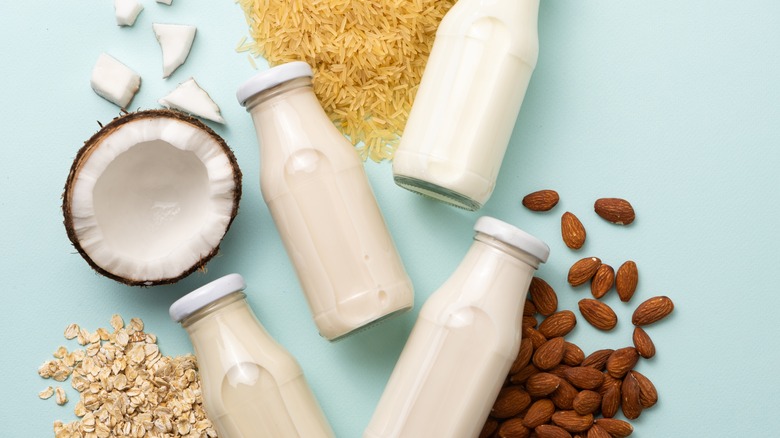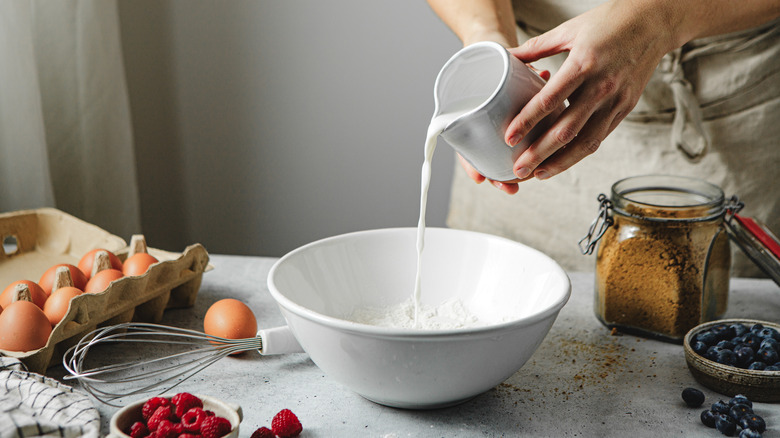How To Pick The Best Plant-Based Milk For Baking
Following a vegetarian or vegan diet — or finding alternatives if you have allergies or prefer to go dairy-free — is easier than ever. With so many plant-based milk options available, you can choose the taste and texture you like best for drinking, cooking, and even baking. Beyond soy, almond, and coconut milk, you can easily find or make options like oat, cashew, hemp, and even potato milk. While a one-to-one swap for cow's milk works well in many recipes, when it comes to baked goods, choosing the right plant-based milk can make all the difference.
In baking, there's more to consider than just taste, though flavor does matter — some varieties of non-dairy milk can be subtle, while others are more pronounced and may affect your final product. Factors like consistency, sweetness, and protein levels are crucial, as they can influence both the texture and appearance of your baked goods. Many store-bought plant milks contain added sweeteners or flavorings, which can result in unexpected flavor shifts. For recipes that rely on protein for structure, like cakes and some cookies, choosing a milk with lower protein can impact how well they hold up. Bread baking, in particular, can be challenging, as protein levels affect the dough's rise, timing, and texture, which all play into the final flavor. Finally, for recipes that depend on creaminess — like frostings, glazes, and fillings — the consistency of plant-based milks can vary widely, which may lead to inconsistent or even disappointing results.
Which plant-based milks work best for baking
If you're looking for a one-size-fits-all non-dairy milk for baking, soy is the way to go. This is thanks to protein content, which is far higher in soy milk than other alternatives. But if soy doesn't fit the bill, you can find other options — you'll just need to be a bit more discerning. If you opt for almond or oat, which tend to come in more options than some other plant based milks, be sure to pick a full fat version. Since protein matters for some of your baked goods, you can also look for higher protein options.
Some plant-based milks work for specific swaps, like using coconut milk instead of sweetened condensed milk. Particular recipes may need to be adjusted based on what you're using. For instance, making icing or a glaze with a non-dairy alternative that is thinner than regular milk will mean you'll want to use less of your alternative to achieve the right consistency. This rule of thumb applies across recipes: Expect to make small changes to measurements or other ingredients when swapping out dairy milk. Keep in mind that just because they're not cow's milk doesn't mean non-dairy milks last indefinitely — oat milk and almond milk only last about a week or so once opened.

